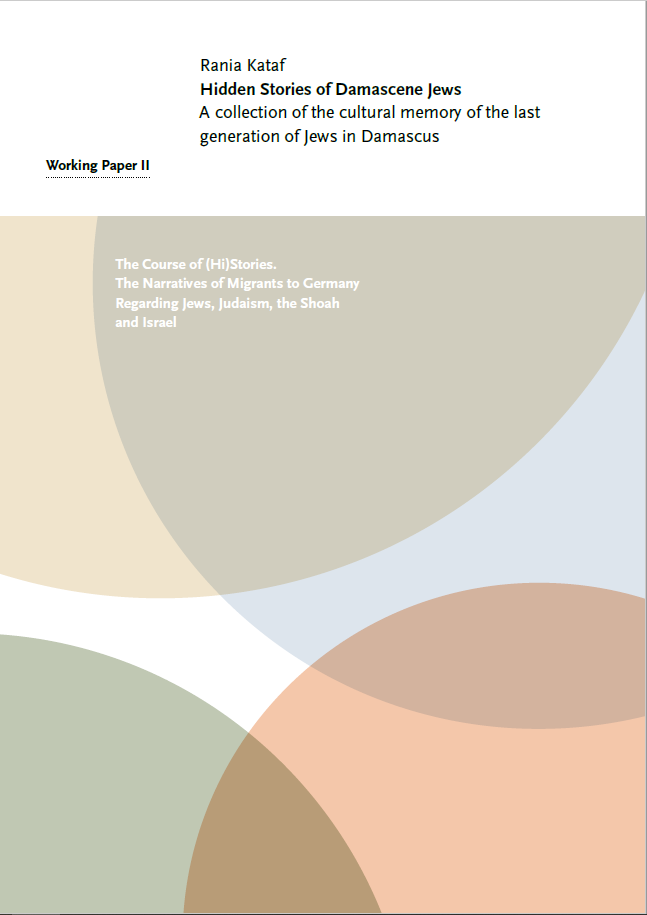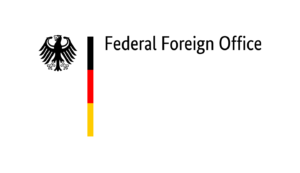Hidden Stories of Damascene Jews. A collection of the cultural memory of the last generation of Jews in Damascus
Working Paper II
Author: Rania Kataf
Editors: Tanja Lenuweit, Anna-E. Hampel
November 2020

Author: Rania Kataf
Editors: Tanja Lenuweit, Anna-E. Hampel
November 2020
In the second working paper of the project The Course of (Hi)Stories Syrian documentary photographer Rania Kataf presents the results of her research on Jewish life in Damascus.
Rania Kataf tracked down places, objects and documents that are evidence of Jewish presence in the city of Damascus and conducted interviews with some of the last Jews who still live or lived there. In this way, she provides a unique testimony to the long and diverse history of Jewish life in a place that, along with Aleppo, was once the urban centre of Syrian Jewry. This is all the more significant because Damascus – the former home and place of living – is becoming a place of memory, and only a handful of people can still speak about their experiences as Jews in the city: They are (for now) the last, small generation of Jews still living not only in Damascus, but in Syria.
The working paper is divided into two parts: In the first part, Rania Kataf documents her research using selected examples of architecture, objects, and documents. The second part consists of six narrative interviews. These interviews were conducted in the fall of 2019, three of the interviewees still live in Damascus, three have already emigrated to Brooklyn (New York City, USA), where one of the largest Syrian Jewish diaspora communities has emerged. All interviews were conducted in Arabic and translated into English by Rania Kataf.
The publication was supplemented by the editors with a contextualizing preface and a timeline.
Contact:
Tanja Lenuweit
t.lenuweit@minor-kontor.de
Additional information:
66 Pages
Subscription options:
This working paper is being published as part of the project The Course of (Hi)stories.
The project is under the patronage of the Federal Minister of Foreign Affairs, Heiko Maas.
Funded by:

